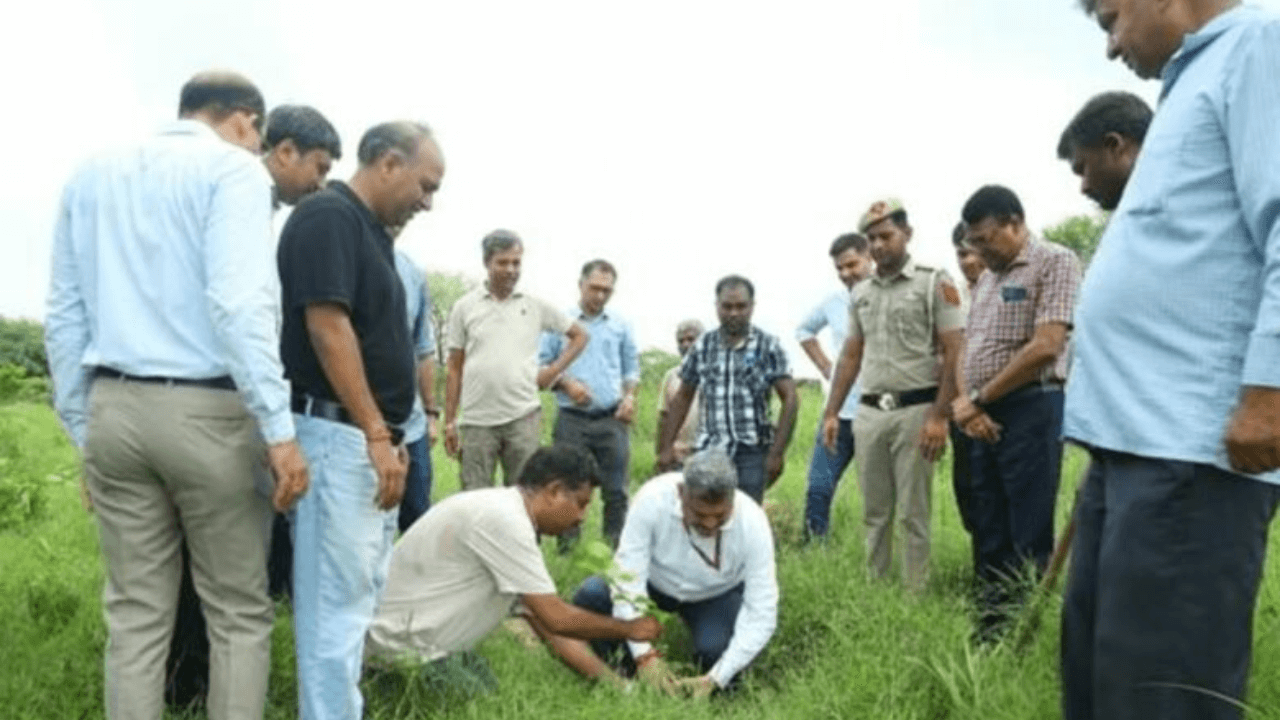In preparation for Harit Mahotsav, the Directorate General of Goods and Services Tax Intelligence (DGGI) in New Delhi collaborated with the Department of Environment Studies, Delhi University, and the Delhi Development Authority for a plantation drive at Aravalli Biodiversity Park in Vasant Kunj, New Delhi. This joint effort aimed to supplement the conservation of the Aravalli ecosystem. DGGI officials, along with ecological experts, actively participated in the drive.
Promoting Native Plants:
During the plantation drive, around 200 plants of local and endemic varieties were planted to enrich the Aravalli ecosystem. Native species like Albizia lebbeck (siris), Bauhinia acuminata (Kachnar), Diospyros montana (tendu), and others were carefully chosen to prevent ecosystem degradation and support local fauna, contributing to the conservation efforts of the Delhi Development Authority.
Collaboration and Guidance:
The plantation drive received guidance from experts including ecologists, field biologists, and supervisory staff. These experts, alongside officials from DGGI, were guided by professionals from the Aravalli Biodiversity Park. They explained the objectives of the park and provided valuable insights during the plantation drive.
Preserving Biodiversity and Conservation Efforts:
The Plantation Drive aimed to raise awareness about preserving biodiversity, conserving keystone species, and protecting threatened plant and animal species. It also sought to establish field gene banks, promote environmental education, foster native communities in the Aravalli hills and the River Yamuna basin, develop treatment wetlands for water quality improvement, sustain aquatic flora and fauna, and monitor ecological changes in the Delhi region.
Conclusion:
The collaborative plantation drive conducted by DGGI, in association with environmental organizations, showcased their commitment to conserving the Aravalli ecosystem. By planting native species, the drive contributed to enriching the local flora and supporting conservation efforts. It also served as an initiative to raise awareness about biodiversity preservation and promote environmental consciousness in the Delhi region.
- 3 August Current Affairs 2023 in English
- MoU Between Subroto Mukerjee Sports and Education Society and All India Football Federation (AIFF) to Promote Football at Grassroot Level
- Dr. Mansukh Mandaviya Delivers Keynote Address at the 13th Indian Organ Donation Day ceremony
- Education Ministry Forms Expert Panel on Anti-Discrimination in Higher Education
- Concerns Arise Over Cheetah Deaths at Kuno National Park
